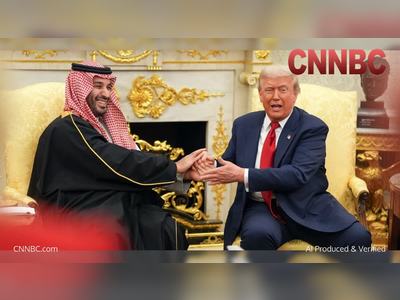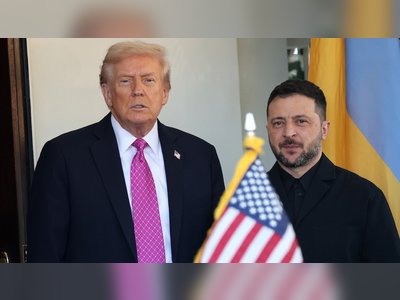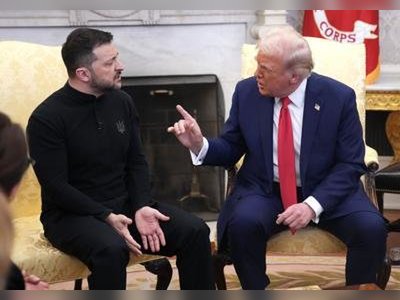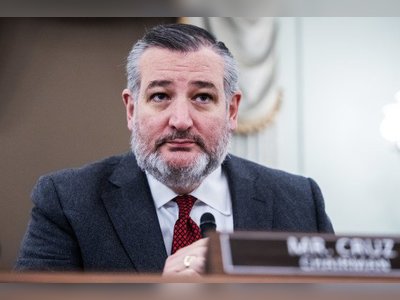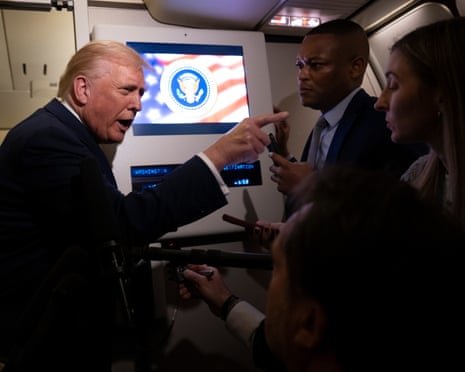
White House Defends Trump After ‘Piggy’ Remark Toward Reporter
Press secretary says the president’s blunt exchange reflects frustration with misinformation and a commitment to transparency
The White House mounted a forceful defence of President Donald Trump after he referred to a Bloomberg News correspondent as “piggy” during an exchange aboard Air Force One.
Press Secretary Karoline Leavitt said the remark reflected the president’s frustration with what he views as false reporting, insisting that Trump’s direct manner is part of why voters returned him to office.
The exchange occurred when the reporter questioned why Trump would not immediately release the full Jeffrey Epstein files if they contained nothing incriminating.
Trump cut her off, pointing at her and saying, “Quiet.
Quiet, piggy.” Leavitt later argued that the president offers “unprecedented” access to the press and answers questions on a near-daily basis, portraying his bluntness as a sign of honesty rather than hostility.
Leavitt did not identify any specific inaccuracies in the reporter’s question but suggested that persistent mischaracterisations by certain outlets have repeatedly tested the president’s patience.
She emphasised that Trump continues to engage openly with journalists, even when confronted with aggressive or adversarial lines of questioning.
The comment provoked strong reactions from media organisations and press-freedom advocates, many of whom criticised the tone of Trump’s response, particularly toward female reporters.
The Society of Professional Journalists issued a statement warning that repeated personal attacks on journalists risk eroding the norms surrounding a free and independent press.
The White House has countered that such criticism overlooks Trump’s consistent openness to media access and his willingness to address contentious topics directly.
The episode followed another tense moment in the Oval Office when Trump told an ABC News correspondent that she was a “terrible person” after she questioned both the crown prince of Saudi Arabia and the president about the handling of the Epstein documents.
The White House has characterised both moments as examples of the president rejecting what he sees as loaded or disrespectful questions.
As debate continues, administration officials maintain that Trump’s exchanges with reporters—however heated—reflect transparency rather than intimidation, arguing that his approach underscores a belief in speaking plainly even in high-pressure moments.
Press Secretary Karoline Leavitt said the remark reflected the president’s frustration with what he views as false reporting, insisting that Trump’s direct manner is part of why voters returned him to office.
The exchange occurred when the reporter questioned why Trump would not immediately release the full Jeffrey Epstein files if they contained nothing incriminating.
Trump cut her off, pointing at her and saying, “Quiet.
Quiet, piggy.” Leavitt later argued that the president offers “unprecedented” access to the press and answers questions on a near-daily basis, portraying his bluntness as a sign of honesty rather than hostility.
Leavitt did not identify any specific inaccuracies in the reporter’s question but suggested that persistent mischaracterisations by certain outlets have repeatedly tested the president’s patience.
She emphasised that Trump continues to engage openly with journalists, even when confronted with aggressive or adversarial lines of questioning.
The comment provoked strong reactions from media organisations and press-freedom advocates, many of whom criticised the tone of Trump’s response, particularly toward female reporters.
The Society of Professional Journalists issued a statement warning that repeated personal attacks on journalists risk eroding the norms surrounding a free and independent press.
The White House has countered that such criticism overlooks Trump’s consistent openness to media access and his willingness to address contentious topics directly.
The episode followed another tense moment in the Oval Office when Trump told an ABC News correspondent that she was a “terrible person” after she questioned both the crown prince of Saudi Arabia and the president about the handling of the Epstein documents.
The White House has characterised both moments as examples of the president rejecting what he sees as loaded or disrespectful questions.
As debate continues, administration officials maintain that Trump’s exchanges with reporters—however heated—reflect transparency rather than intimidation, arguing that his approach underscores a belief in speaking plainly even in high-pressure moments.



